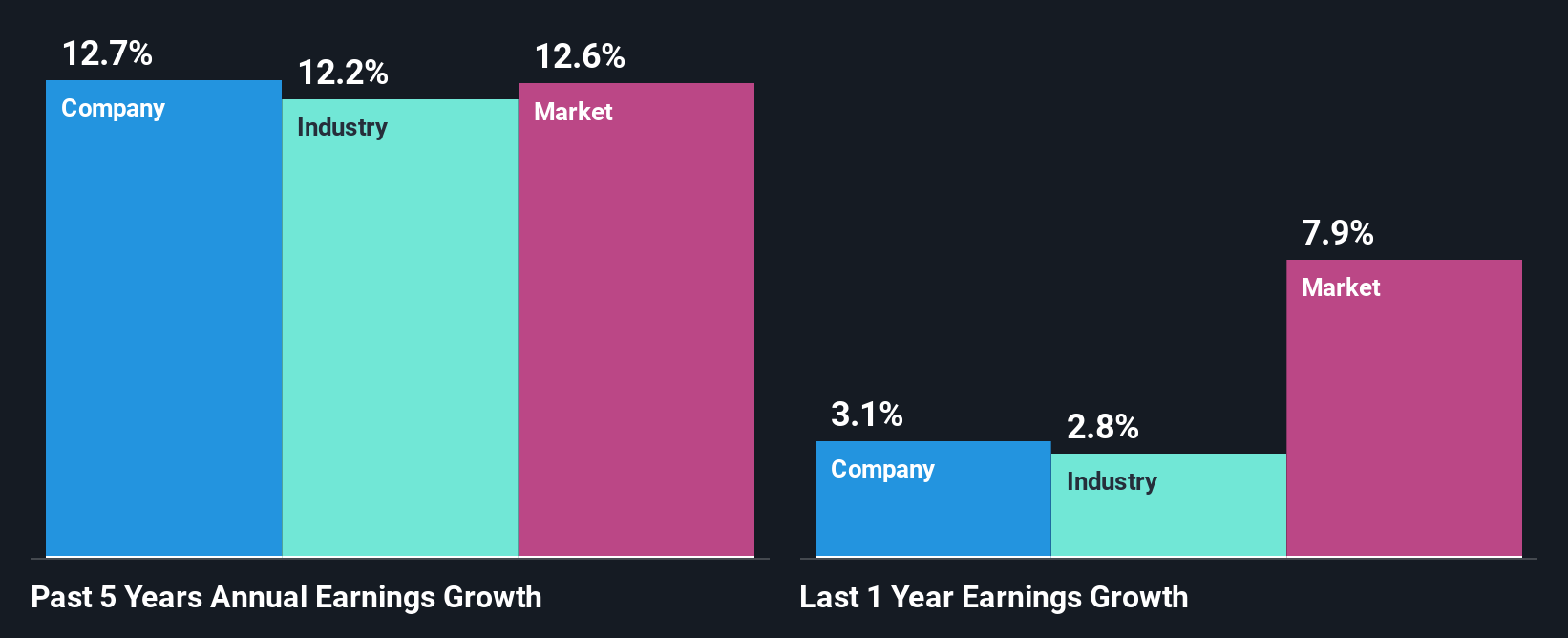Indutrade AB (publ)'s (STO:INDT) Stock Has Been Sliding But Fundamentals Look Strong: Is The Market Wrong?
It is hard to get excited after looking at Indutrade's (STO:INDT) recent performance, when its stock has declined 13% over the past three months. However, a closer look at its sound financials might cause you to think again. Given that fundamentals usually drive long-term market outcomes, the company is worth looking at. In this article, we decided to focus on Indutrade's ROE.
Return on equity or ROE is a key measure used to assess how efficiently a company's management is utilizing the company's capital. In other words, it is a profitability ratio which measures the rate of return on the capital provided by the company's shareholders.
How Is ROE Calculated?
The formula for return on equity is:
Return on Equity = Net Profit (from continuing operations) ÷ Shareholders' Equity
So, based on the above formula, the ROE for Indutrade is:
17% = kr2.8b ÷ kr16b (Based on the trailing twelve months to March 2025).
The 'return' refers to a company's earnings over the last year. Another way to think of that is that for every SEK1 worth of equity, the company was able to earn SEK0.17 in profit.
View our latest analysis for Indutrade
Why Is ROE Important For Earnings Growth?
So far, we've learned that ROE is a measure of a company's profitability. Depending on how much of these profits the company reinvests or "retains", and how effectively it does so, we are then able to assess a company’s earnings growth potential. Generally speaking, other things being equal, firms with a high return on equity and profit retention, have a higher growth rate than firms that don’t share these attributes.
Indutrade's Earnings Growth And 17% ROE
To begin with, Indutrade seems to have a respectable ROE. Even when compared to the industry average of 15% the company's ROE looks quite decent. Consequently, this likely laid the ground for the decent growth of 13% seen over the past five years by Indutrade.
We then performed a comparison between Indutrade's net income growth with the industry, which revealed that the company's growth is similar to the average industry growth of 12% in the same 5-year period.

The basis for attaching value to a company is, to a great extent, tied to its earnings growth. The investor should try to establish if the expected growth or decline in earnings, whichever the case may be, is priced in. This then helps them determine if the stock is placed for a bright or bleak future. Is INDT fairly valued? This infographic on the company's intrinsic value has everything you need to know.
Is Indutrade Making Efficient Use Of Its Profits?
With a three-year median payout ratio of 36% (implying that the company retains 64% of its profits), it seems that Indutrade is reinvesting efficiently in a way that it sees respectable amount growth in its earnings and pays a dividend that's well covered.
Besides, Indutrade has been paying dividends for at least ten years or more. This shows that the company is committed to sharing profits with its shareholders. Our latest analyst data shows that the future payout ratio of the company over the next three years is expected to be approximately 35%. Therefore, the company's future ROE is also not expected to change by much with analysts predicting an ROE of 17%.
Conclusion
In total, we are pretty happy with Indutrade's performance. In particular, it's great to see that the company is investing heavily into its business and along with a high rate of return, that has resulted in a sizeable growth in its earnings. The latest industry analyst forecasts show that the company is expected to maintain its current growth rate. To know more about the latest analysts predictions for the company, check out this visualization of analyst forecasts for the company.
New: AI Stock Screener & Alerts
Our new AI Stock Screener scans the market every day to uncover opportunities.
• Dividend Powerhouses (3%+ Yield)
• Undervalued Small Caps with Insider Buying
• High growth Tech and AI Companies
Or build your own from over 50 metrics.
Have feedback on this article? Concerned about the content? Get in touch with us directly. Alternatively, email editorial-team (at) simplywallst.com.
This article by Simply Wall St is general in nature. We provide commentary based on historical data and analyst forecasts only using an unbiased methodology and our articles are not intended to be financial advice. It does not constitute a recommendation to buy or sell any stock, and does not take account of your objectives, or your financial situation. We aim to bring you long-term focused analysis driven by fundamental data. Note that our analysis may not factor in the latest price-sensitive company announcements or qualitative material. Simply Wall St has no position in any stocks mentioned.
About OM:INDT
Indutrade
Manufactures, develops, and sells components, systems, and services to various industries worldwide.
Flawless balance sheet with moderate growth potential.
Similar Companies
Market Insights
Community Narratives



